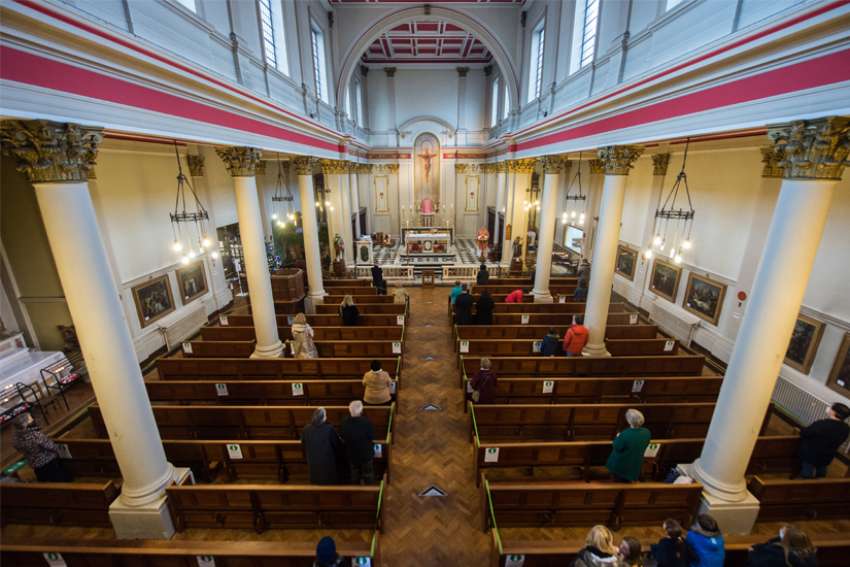Churches in Scotland, however, must close as part of measures introduced Jan. 5 to contain the spread of a highly infectious new variant of COVID-19, leading the bishops there to denounce the measure as "arbitrary and unfair."
Cardinal Vincent Nichols of Westminster welcomed the exemption in a statement published Jan. 5 on the website of the Bishops' Conference of England and Wales.
"The regular practice of our faith in God is a well-established source of both personal resilience and dedicated service to those in need," said Cardinal Nichols, president of the bishops' conference. "Such resilience and enduring service are vital in these difficult circumstances.
"I am glad that no measures have been introduced that would obstruct or curtail this essential source of energy for the common good," he said.
Churches in Wales and Northern Ireland -- the two other states that make up the United Kingdom -- will be allowed to remain open subject to stringent social distancing measures.
The response to COVID differs because it is treated as a devolved matter, dealt with by principally by national administrations.
All have entered lockdown, which one government minister said would last at least until March, amid a mass vaccination program to counter a mutated variety of coronavirus, which scientists believe is 70% more infectious that the original virus.
The lockdown was announced Jan. 4 in a televised address by British Prime Minister Boris Johnson, and new rules require that all people "stay at home" unless they are seeking medical assistance, buying food, exercising or fleeing domestic abuse.
Guidance for England says people can also "leave home to attend or visit a place of worship for communal worship."
In November, Johnson was severely criticized by Catholic and Anglican leaders and many politicians of the ruling Conservative Party when he ordered churches to shut for a month during the second national lockdown.
Yet in Scotland, First Minister Nicola Sturgeon ordered places of worship to close from Jan. 8 until at least Feb. 1.
Her decision led the Scottish bishops to issue a joint statement questioning why "no evidence has been forthcoming to justify the inclusion of places of worship as sources of infection."
"Public worship is a human right and is a duty humanity owes to God," they said. "Catholics need the Eucharist."


